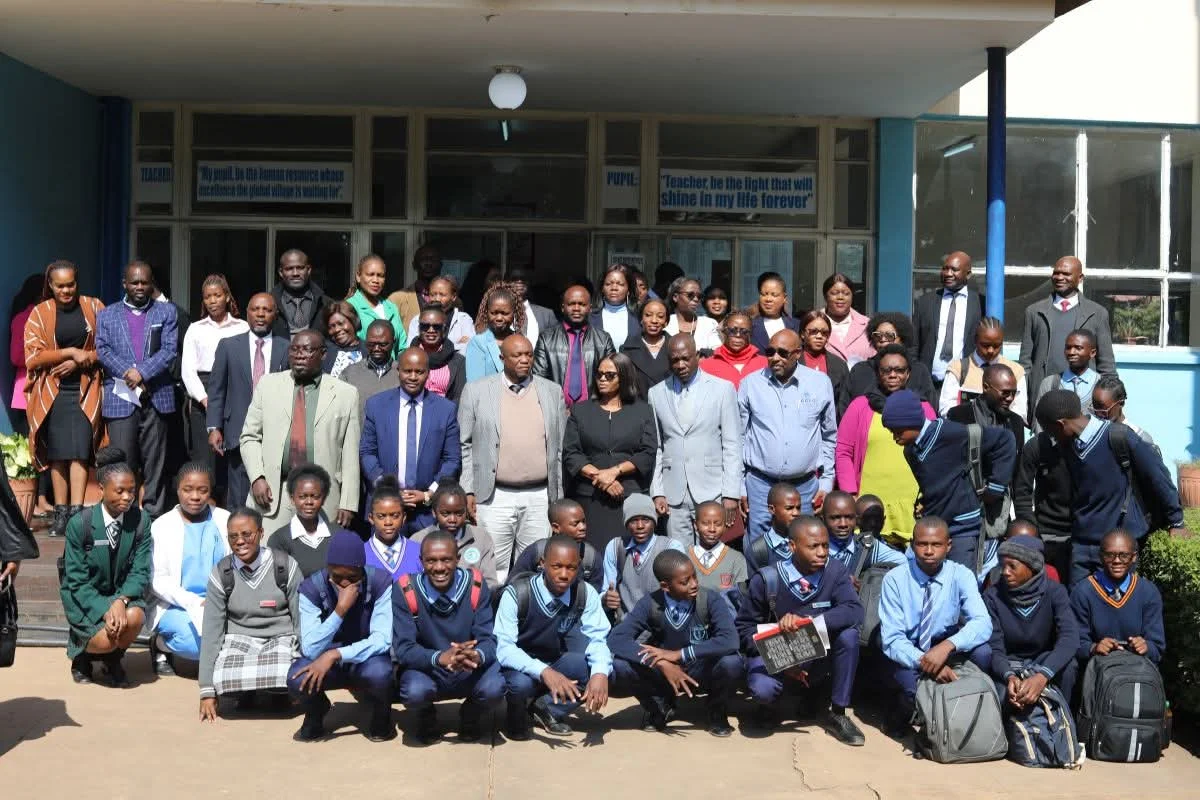Shaping Informed Consumers
Zambia's 2025 School Clubs Lead the Way in Promoting Consumer Rights and Market Ethics
By Francis Maingaila ♥️
Lusaka, Zambia24 – (12-06-2025) - The Zambia Compulsory Standards Agency (ZCSA), in collaboration with the Competition and Consumer Protection Commission (CCPC), has launched the 2025 School Club Activities to promote product safety, consumer awareness, consumer protection and product safety awareness among pupils, empowering them to become informed consumers and advocates for fair market practices.
ZCSA Executive Director Gerald Chizinga, speaking at the launch in Lusaka, said the initiative seeks to equip learners with knowledge on identifying unsafe products and understanding their rights as consumers.
“This project is not just about enforcing standards—it’s about protecting the well-being of our children by ensuring the products they use are safe, reliable, and compliant,” Mr. Chizinga said.
The initiative will leverage CCPC’s existing school club network to introduce key concepts on consumer rights and product safety. Pupils will engage in activities such as debates, essay writing, photography, and public education campaigns, aligned with the mandates of both agencies.
ZCSA, a statutory body under the Ministry of Commerce, Trade and Industry, was established under the Compulsory Standards Act No. 3 of 2017 to enforce product standards for public health, safety, and environmental protection.
The agency currently enforces compulsory standards on 61 products, including food, beverages, chemicals, electrical appliances, cement, fertilizers, and used motor vehicles.
Plans are underway to expand regulation to 41 more products, such as solar goods, industrial materials, and packaging.
Mr. Chizinga said ZCSA inspects both imported and locally manufactured products at border points, factories, and markets. It has authority under the law to seize, correct, or destroy non-compliant products—defined as expired, poorly packaged, unlabelled, or products labelled only in a foreign language.
“All products on the Zambian market must be labelled in English. Consumers should check expiry or use-by dates and purchase only from reputable outlets,” he advised.
He underscored the importance of educating pupils early on, saying this would foster a generation of informed consumers who understand the significance of regulatory compliance.
“Our commitment to consumer protection is unwavering. Through this initiative, we aim to empower young people to become advocates for safety in their homes and communities,” Mr. Chizinga said.
He thanked CCPC for the partnership and acknowledged the support of teachers, pupils, and stakeholders.
“Together, we can create a future where product safety is not just a regulatory obligation but a fundamental right for every Zambian,” he concluded.
Speaking during the official launch of the joint collaborative Initiative, CCPC Acting Executive Director Eunice Phiri Hamanhwa described the program as a vital investment in Zambia’s future—aimed at equipping learners with critical knowledge about consumer rights, fair competition, and compliance with national standards.
“This launch marks more than the beginning of another program cycle. It signifies a deepened commitment to empowering the next generation with knowledge,” Hamanhwa said.
The initiative targets schools across the country, using structured clubs to promote awareness of key consumer protection issues such as price fairness, product safety, and market integrity.
According to Hamanhwa, the clubs serve as interactive platforms for learners to understand and engage with the principles of consumer welfare, competition law, and quality standards enforcement.
Hamanhwa outlined the program’s fourfold vision: to provide dynamic learning spaces where pupils can explore core issues in consumer rights and competition; equip learners to identify anti-competitive behavior, non-compliant goods, and unfair trade practices; empower students to become ambassadors of ethical markets who spread awareness within their schools, homes, and communities; and encourage learner-led outreach that amplifies the initiative’s impact well beyond the classroom.
“Education is the foundation of consumer protection. By establishing school clubs, we’re nurturing pupils who can question unfair practices and promote ethical conduct,” she said.
The launch forms part of a broader effort to create a knowledgeable and resilient citizenry capable of holding businesses accountable and contributing to a more transparent economic environment.
Hamanhwa commended school administrators and teachers for their continued support and urged them to maintain the enthusiasm that has sustained the program in previous years.
She further encouraged students to take full ownership of the initiative: “Learn, lead, and be the change agents we need for a stronger and more just marketplace.”
The CCPC-ZCSA School Clubs Initiative, which has already gained traction in various provinces, is expected to broaden its reach and deepen its impact in the 2025 cycle, with support from education stakeholders and community leaders.
The ceremony ended with a strong call for continued collaboration and optimism for the role of young people in shaping a fairer, safer consumer landscape in Zambia.
Speaking at the same occasion Lusaka Provincial Education Officer Terry Changwe said the initiative aligns with the Ministry of Education’s goal to equip learners with practical life skills for responsible participation in society and the economy.
“Consumer protection and product safety are essential to learners' well-being,” he said.
“This initiative helps them make informed and ethical choices.”
He noted that pupils interact with various products and services daily, making it important to teach them about consumer rights, identifying substandard goods, and encouraging ethical consumption.
The program supports education priorities such as civic responsibility, economic awareness, real-world learning, and marketplace accountability.
Changwe said the initiative complements existing subjects like Life Skills, Social Studies, and Health Education, and strengthens the Ministry’s values-based approach.
He praised CCPC and ZCSA for their collaboration with schools, calling it a practical example of policy implementation that promotes informed citizenship.
“To our teachers—your role is vital in delivering this program. And to our learners—what you gain here will shape how you engage with the world,” he said.
The project is expected to expand to other schools in Lusaka, contributing to national efforts to integrate consumer education into the school system.






Comments
Post a Comment